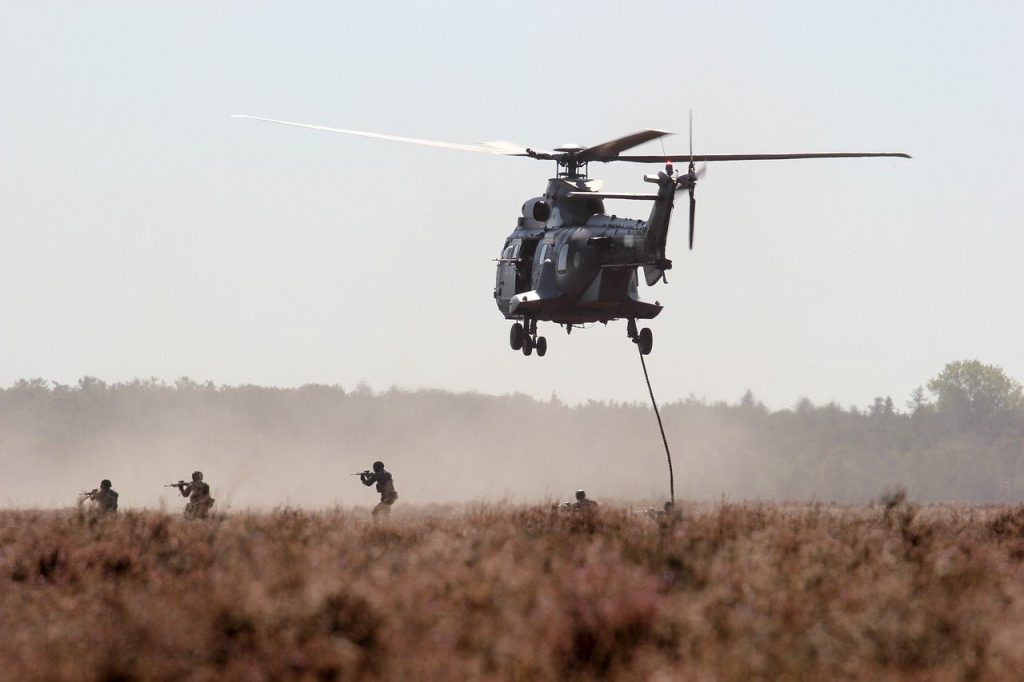Dominic Raab says the UK will need to engage directly with the Taliban over priorities such as helping eligible evacuees to leave Afghanistan.

According to Raab, co-operation on border crossings is an “important first test” of the Taliban’s relationship with the West.
However, the UK foreign secretary says the government will not recognise the militant group “any time in the foreseeable future”. Although the UK must “adjust to the new reality” after its rapid takeover, he adds.
Speaking at a press conference in Qtar, Mr Raab said the country would be an “influential player” in providing a moderating influence on the Taliban government. For the past eight years, the Gulf state has hosted the Taliban’s political office. It is currently in discussions with the group over the reopening of Kabul airport. But Qatar’s foreign minister Sheikh Mohammed bin Abdulrahman al-Thani says there is no “clear indication” yet of when this might happen. Although he adds that they “are working very hard” and “remain hopeful” at being able to operate it as soon as possible. He hopes to hear “some good news” within the next few days.
Mr Raab held talks with Sheikh Mohammed and the Emir of Qatar during a tour of the region. Meanwhile, British officials meeting with senior Taliban leaders in Doha will brief the foreign secretary on their talks’ outcome.
“Actions not words”
The British embassy to Afghanistan moved out of Kabul last week, and is now up and running in Doha.
Mr Raab says, “we will not be recognising the Taliban”. But he does see the need for direct engagement, to provide messages, and listen to responses. One particular key point to discuss is how to provide safe passage for people out of Afghanistan. Co-operation of the group is vital to ensure a “permissive climate” for aid workers in the country.
However, Raab warns that the government will judge the Taliban on its “actions not words”.
The foreign secretary’s trip to Qatar followed his grilling from MPs on the UK’s withdrawal from Afghanistan. Raab defended his handling of the crisis, saying the UK was “caught out” by the speed of the Taliban taking over Kabul. Intelligence at the time suggested it would not happen until the end of the year.
The Foreign Office risk report
But the Commons foreign affairs committee chairman, Conservative MP Tom Tugendhat, says a Foreign Office risk report warned of such things. The document from 22 July predicted a “very real danger of cities collapsing” after the withdrawal of US forces.
The leaked document highlights how stalling peace talks and withdrawing military presence would lead to “rapid Taliban advances”. It goes on to say: “This could lead to: fall of cities, collapse of security forces. Taliban return to power, mass displacement and significant humanitarian need. The embassy may need to close if security deteriorates”.
Although the document does in some way back up the foreign secretary’s claim of not having warning of an imminent collapse of Kabul. It talked about the UK “working with allies to ensure continued support for Afghan and security forces over the next 3-6 months on supporting the peace process”. Mr Raab argues that this “makes clear that our central planning assumption at the time was that the peace process in Afghanistan would run for up to a further six months”.
It was a shock for many when large places previously resistant to the Taliban fell so easily without any apparent fight.
The argument is that the problem lies not so much in the failure of intelligence, but rather the limits of intelligence.
Thank you for reading Taliban and UK must talk about Afghanistan evacuations, says Raab

Looking for additional living space or somewhere quiet to work from home? Look no further – Log cabins at affordable prices.